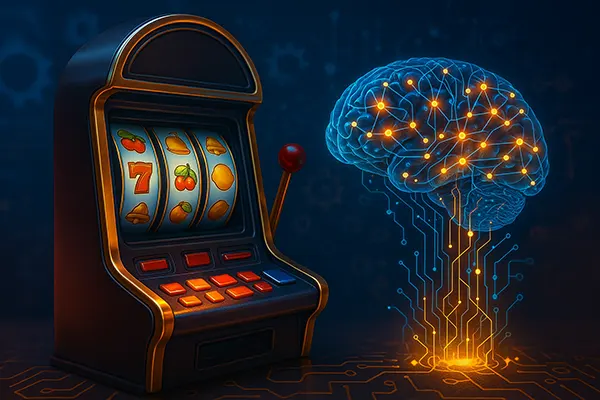
How Artificial Intelligence Is Transforming Slot Algorithms in 2025
Artificial Intelligence (AI) continues to revolutionise nearly every facet of the online gambling industry, and in 2025, its influence on slot machine algorithms has become especially significant. With machine learning models now capable of fine-tuning user experiences and enhancing game dynamics in real time, players are witnessing a major shift in how slot games are developed, monitored, and optimised.
Real-Time Personalisation of Slot Gameplay
One of the most impactful uses of AI in 2025 lies in personalising slot games according to a player’s individual habits and preferences. Advanced algorithms can now detect patterns in how users interact with a game—such as their spin frequency, average wager, or time spent on specific reels—and adjust the gameplay accordingly to keep players engaged without manipulating outcomes unfairly.
Game developers are deploying adaptive difficulty mechanics, similar to those in video games, which alter the pace of bonus rounds or introduce visual features that align with the user’s emotional engagement levels. These modifications create a tailored experience that feels intuitive and satisfying, increasing session length while maintaining responsible gaming standards.
Additionally, AI helps in segmenting audiences more effectively. By analysing big data in real time, platforms can offer dynamic game suggestions, free spin incentives, and even volatility adjustments to better suit each player’s unique profile, making the experience more enjoyable and less monotonous.
Impact on Volatility and Return to Player (RTP)
While slot games still adhere to strict fairness rules and licensing laws, AI allows developers to implement smarter RTP adjustments within legally allowed ranges. Instead of using a static RTP model, many new titles feature flexible payout structures that can subtly shift based on user groups, time of day, or broader game data analytics.
This does not mean that outcomes are altered after the spin begins—RNG (Random Number Generator) integrity is still intact. However, by pre-selecting from a range of RTP profiles, developers can offer varying experiences for casual players versus high rollers. This technique ensures both entertainment and profitability without undermining trust.
Such adaptive RTP configurations are closely monitored by third-party auditing firms and gaming authorities to prevent any exploitation, reinforcing transparency and user protection in AI-assisted games.
AI-Powered Fraud Detection and Fairness Monitoring
AI is now critical in combating fraud and preserving fairness in slot environments. With online casinos handling millions of microtransactions per hour, machine learning models are employed to flag suspicious activity in real time—such as bonus abuse, pattern detection in spin timing, or bot-driven behaviours.
These systems don’t just block activity but learn and evolve to detect new forms of exploitation that may arise. For instance, if an individual uses VPNs to bypass country restrictions or employs scripts to test payout weaknesses, AI-driven systems will recognise these anomalies far quicker than traditional manual audits.
In parallel, fairness monitoring has reached new heights. AI can simulate thousands of game cycles in seconds, checking for unexpected imbalances or statistical anomalies that may affect user trust. This rapid auditing capability ensures slot developers meet regulatory standards and maintain a high level of credibility with their audiences.
Certification and AI Transparency Requirements
In 2025, regulatory bodies such as the UK Gambling Commission and Malta Gaming Authority require developers to disclose their use of AI in game mechanics. Certifications must now include documentation of how AI models are trained, tested, and deployed within games.
This has led to the emergence of “AI fairness audits”—new standardised procedures where independent firms verify that artificial intelligence does not interfere with random number generation or create bias in outcome patterns. These audits are a prerequisite for licensing in most European jurisdictions.
Transparency is also being mandated at the player interface level. Many modern slot titles now feature a “Tech Info” tab where users can read simplified explanations about how AI is used, offering greater clarity and boosting user confidence in the integrity of the game.

The Future of Slot Development with Generative AI
Beyond behavioural analytics and fairness, generative AI is redefining how slot games are conceptualised and produced. In 2025, developers are leveraging large AI models to generate artwork, animations, and even basic storyline elements, cutting production timelines dramatically while still allowing human oversight for final approval.
Procedural generation is also becoming common, enabling games to produce near-infinite variations of bonus rounds, mini-games, and reel layouts. This keeps content fresh without requiring frequent manual updates, which benefits both players and operators.
Furthermore, AI-driven narrative engines are capable of producing dynamic story-based slots where events unfold differently depending on how a player interacts with the game. This level of immersion, formerly exclusive to console games, is now being integrated into casino environments, blurring the lines between entertainment and gambling.
Ethical Considerations and Player Wellbeing
With such powerful technologies in play, responsible AI use has become a central issue. Developers are required to integrate ethical AI models that include loss limits, emotional engagement tracking, and cooling-off triggers to protect users from problematic gambling behaviours.
AI is also being used for early detection of at-risk behaviours, such as erratic betting patterns or emotional spending surges. These triggers activate in-game messages, temporarily restrict activity, or recommend self-exclusion options, helping maintain a safer environment for all users.
Industry watchdogs and advocacy groups are working closely with developers to ensure that the growth of AI in slots benefits players without exploiting psychological vulnerabilities. This collaborative approach is shaping a more transparent and ethical future for digital gambling.
